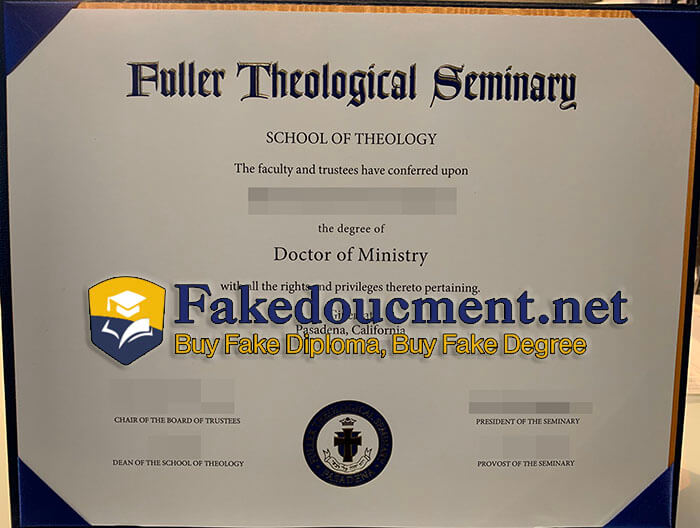
Where to order fake Fuller Theological Seminary degree certificate online? Why people would like to buy a realistic Fuller Theological Seminary diploma certificate online? I would like to buy a realistic Fuller Theological Seminary degree certificate online.
Fuller Theological Seminary is a seminary, graduate school, and research institution with campuses in Pasadena, California, and Houston, Texas. Founded in 1947, Fuller is known for its commitment to evangelical Christian theology and its emphasis on integrating academic study with practical ministry experience.
Fuller offers a variety of academic programs, including master’s and doctoral degrees in fields such as theology, psychology, and intercultural studies. The seminary also offers non-degree programs and certificates for students seeking to deepen their understanding of Christian faith and ministry.
Fuller is accredited by the Western Association of Schools and Colleges and the Association of Theological Schools. The seminary has a diverse student body representing a wide range of Christian traditions and denominations.
Fuller Theological Seminary is committed to preparing men and women for leadership roles in pastoral ministry, counseling, missions, and other areas of Christian service. The seminary places a strong emphasis on theological reflection, spiritual formation, and cultural engagement, equipping students to engage with the complexities of contemporary society while remaining rooted in their Christian faith.
Fuller Theological Seminary was founded in 1947 by Charles E. Fuller, a radio evangelist known for his Old Fashioned Revival Hour show, and Harold Ockenga, the pastor of Park Street Church in Boston.
The seminary’s founders sought to reform fundamentalism’s separatist and sometimes anti-intellectual stance during the 1920s–1940s. Fuller envisaged that the seminary would become “a Caltech of the evangelical world.” In the late 1940s, evangelical theologians from Fuller championed the Christian importance of social activism.
The earliest faculty held theologically and socially conservative views, though professors with liberal perspectives arrived in the 1960s and 1970s. There were tensions in the late 1950s and early 1960s as some faculty members became uncomfortable with staff and students who did not agree with Biblical inerrancy. This led to people associated with the seminary playing a role in the rise of neo-evangelicalism and progressive theology.






